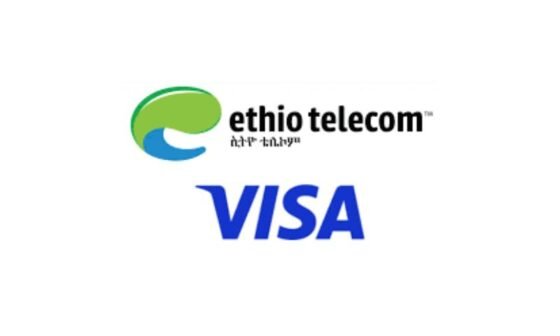Access Bank, one of the largest financial institutions in Nigeria, has gained the trust of millions of investors and customers across Africa. Purchasing shares of Access Bank is an excellent way to invest in the growing Nigerian financial sector. The process of buying these shares has been made easier thanks to advancements in digital finance, and investors can easily access the Nigerian Stock Exchange (NSE) with the help of stockbrokers. Whether you’re a seasoned investor or just getting started, understanding how to buy Access Bank shares can help you grow your financial portfolio.
How To Buy Access Bank Shares
Have you ever wondered how you can own a part of a thriving financial institution like Access Bank? In Nigeria, where banking stocks often offer strong performance, investing in Access Bank shares is an opportunity to ride on the success of one of the nation’s biggest banks. Think of it like this—owning shares is like owning a tiny slice of the Access Bank cake, and depending on the bank’s performance, your slice might grow in size or value. But before you start counting your dividends, it’s essential to know the right steps to take. In this article, we’ll break down how to purchase Access Bank shares and provide tips for making informed investment decisions.
Why Invest in Access Bank Shares?
Access Bank is part of Access Holdings Plc, and over the years, it has grown through strategic mergers and acquisitions, making it a top performer on the Nigerian Stock Exchange (NSE). The bank is known for its robust financial performance, consistent dividend payouts, and focus on expanding its operations across Africa. For investors looking for long-term growth and steady returns, Access Bank shares can be a good choice.
Some of the reasons to consider buying Access Bank shares include:
- Dividend Payments: Access Bank is known for rewarding its shareholders with dividends, making it attractive for income-focused investors.
- Market Stability: As one of the largest banks in Nigeria, Access Bank’s strong market position provides a level of stability that’s appealing in a volatile market.
- Growth Potential: With ongoing expansion into new markets, Access Bank offers promising growth prospects for investors.
Steps to Buy Access Bank Shares
Here’s a step-by-step guide on how you can purchase shares of Access Bank.
- Open a Securities Account
- Choose a Broker: First, you need to open a trading account with a licensed stockbroker. Stockbrokers such as Meristem Securities, ARM Securities, Stanbic IBTC, and others offer access to the Nigerian Stock Exchange (NSE).
- Complete KYC (Know Your Customer): You will need to provide documentation, such as a valid ID, utility bills for proof of address, and your Bank Verification Number (BVN), to comply with KYC requirements.
- Fund Your Account: Once your account is set up, deposit the required amount into your trading account. The amount should cover the cost of the shares you wish to buy as well as any brokerage fees.
- Research Access Bank
- Study the Financials: Before buying shares, it’s essential to research the financial health of Access Bank. Examine their income statement, balance sheet, and recent performance reports. Check if the company is profitable and if they have a history of paying dividends.
- Evaluate Market Trends: Assess the overall banking sector and any external factors that could impact the performance of Access Bank’s stock. You can use online resources, such as the NSE website or your brokerage’s research tools, to gain insights into market trends and stock prices.
- Place an Order
- Choose Your Order Type: There are two main types of orders when buying shares—market orders and limit orders.
- Market Order: A market order allows you to purchase shares at the current market price.
- Limit Order: A limit order lets you set a specific price at which you want to buy shares. The broker will only execute your order if the price reaches your limit.
- Submit Your Order: Once you decide on the type of order, submit your purchase order through the stockbroker’s trading platform. The broker will execute the trade, and once complete, the shares will be deposited into your securities account.
- Choose Your Order Type: There are two main types of orders when buying shares—market orders and limit orders.
- Monitor Your Investment
- Track the Stock Price: Keep an eye on Access Bank’s stock price through your broker’s platform or financial news sources. You may want to regularly check the bank’s financial performance to ensure your investment is still aligned with your goals.
- Review Your Portfolio: Continuously review your investment portfolio and decide if you should hold or sell your shares based on market conditions or personal investment objectives.
Access Bank’s Recent Rights Issue
In 2024, Access Holdings Plc launched a significant rights issue to raise ₦351 billion from its shareholders to fund expansion and other strategic initiatives. A rights issue allows existing shareholders to purchase additional shares at a discount. This is an excellent opportunity for current shareholders to increase their stake in the company at favorable prices.
To participate in such a rights issue:
- You must already be a shareholder before the record date.
- You will receive a Rights Circular and Application Form either by mail or through your stockbroker.
- Fill out the application form and submit it through your broker to purchase the additional shares.
Alternative Methods to Invest in Access Bank Shares
- Mutual Funds: You can invest in Access Bank indirectly by purchasing mutual funds that hold shares in the bank. Mutual funds pool money from multiple investors to invest in a diversified portfolio of stocks, bonds, and other securities, reducing the risk associated with individual stock ownership.
- Exchange-Traded Funds (ETFs): Similar to mutual funds, ETFs are investment funds that track a specific index or sector. There are several ETFs that include Access Bank in their holdings.
- Initial Public Offerings (IPOs): Although Access Bank has been publicly listed for some time, it may occasionally issue new shares through IPOs or secondary offerings. These events provide new opportunities for investors to buy shares at a set price.
Important Considerations When Investing
Investing in shares comes with risks, and it’s important to take these into account before purchasing Access Bank shares.
- Risk of Capital Loss: The value of shares can fluctuate based on market conditions, and there is a risk that you could lose part of your investment if the share price drops.
- Brokerage Fees: Be mindful of the transaction fees and commissions your broker charges for each trade.
- Investment Goals: Understand your financial goals before investing. Are you seeking short-term gains or long-term appreciation? Your goals should dictate your investment strategy.
Conclusion
Buying Access Bank shares is a relatively straightforward process, but like any investment, it requires careful research and strategic planning. Whether you’re looking to invest in banking stocks for growth, dividend income, or long-term wealth creation, Access Bank offers a solid investment opportunity in Nigeria’s financial market. By working with a reputable stockbroker, monitoring market trends, and staying informed about corporate developments, you can make the most out of your investment in Access Bank shares.







